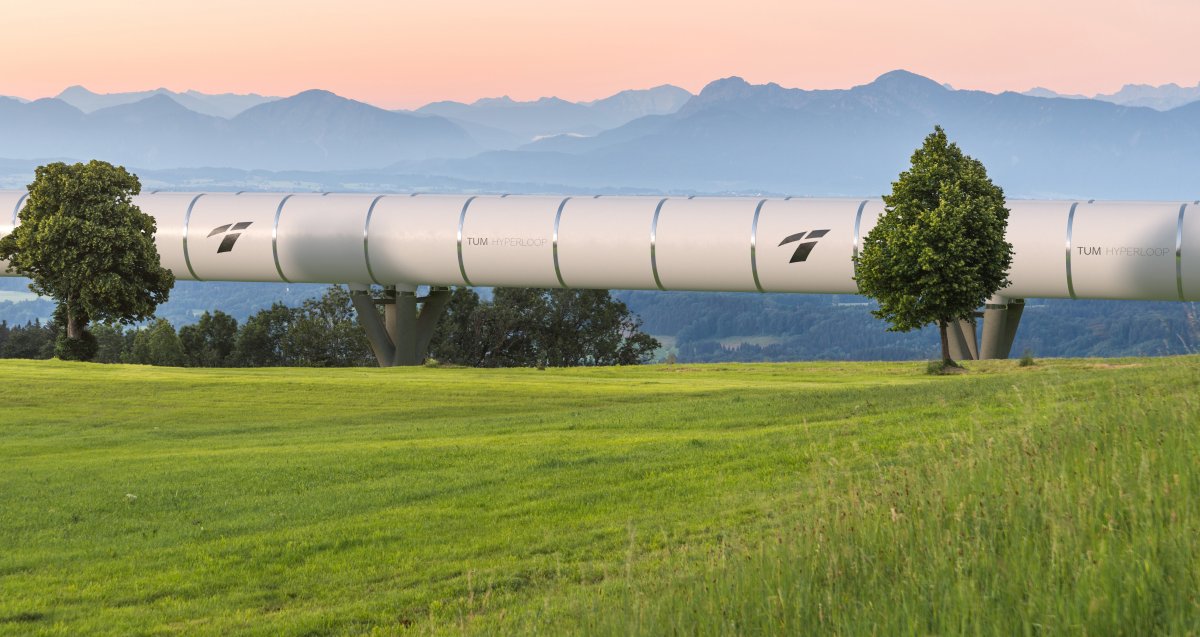At the Technical University of Munich, preliminary work has begun on the construction of a first dedicated test track for the futuristic Hyperloop high-speed transport system. This is reported by Bayerischer Rundfunk and adds that material for construction is already available on site near Ottobrunn.
A 24 meter long and four meter high concrete tube including the foundation is planned, in which a vacuum can be generated. A capsule should glide through there without air resistance, but not with people on board. The university had already announced in 2020 that a full-size prototype for this capsule is also planned. The test tube should be ready by the end of the year, explains project manager Gabriele Semino.
Companies plan only freight transport
The Hyperloop transport system was designed by Tesla and SpaceX boss Elon Musk, who then made his idea available to the general public because he didn’t have time to implement it. It includes transport capsules that are to be chased through a vacuum tube at several hundred kilometers per hour.
Although important technical aspects of the concept have not been clarified – for example with regard to safety and the construction of the immensely long vacuum tubes, or difficulties with the routing – several companies are working on a realization, above all Virgin Hyperloop and HyperloopTT. For a long time, the former was about transporting people, but now, like HyperloopTT, the company is only planning to transport freight. In the meantime, research into the transport of people is being continued in Munich with financial support from the Free State of Bavaria.
The test tube is now created on the Ludwig Bölkow Campus in Taufkirchen on the border to Ottobrunn. The team responsible for this won all Hyperloop test capsule speed competitions hosted by SpaceX between 2016 and 2020. However, the project now being pursued at the university is no longer about increasing the speed achieved by the pods, but about researching aspects such as safety, sustainability and cost-effectiveness.
Possible Hyperloop routes between Munich and other German metropolises would cost between 26 and 32 million euros per kilometer, the team had already calculated. This is only slightly above the median cost of 25 million euros per kilometer for high-speed rail lines in Europe (at 15 million euros per kilometer in Spain), which in a report for the European Court of Auditors from 2018 had been determined. At the same time, travel times would be immensely reduced, to about 70 minutes between Hamburg and the Bavarian capital.
(my)
–


:quality(70):focal(4174x2701:4184x2711)/cloudfront-eu-central-1.images.arcpublishing.com/liberation/YEVDFMXMRBGP7IDXYFATKNBM6M.jpg)